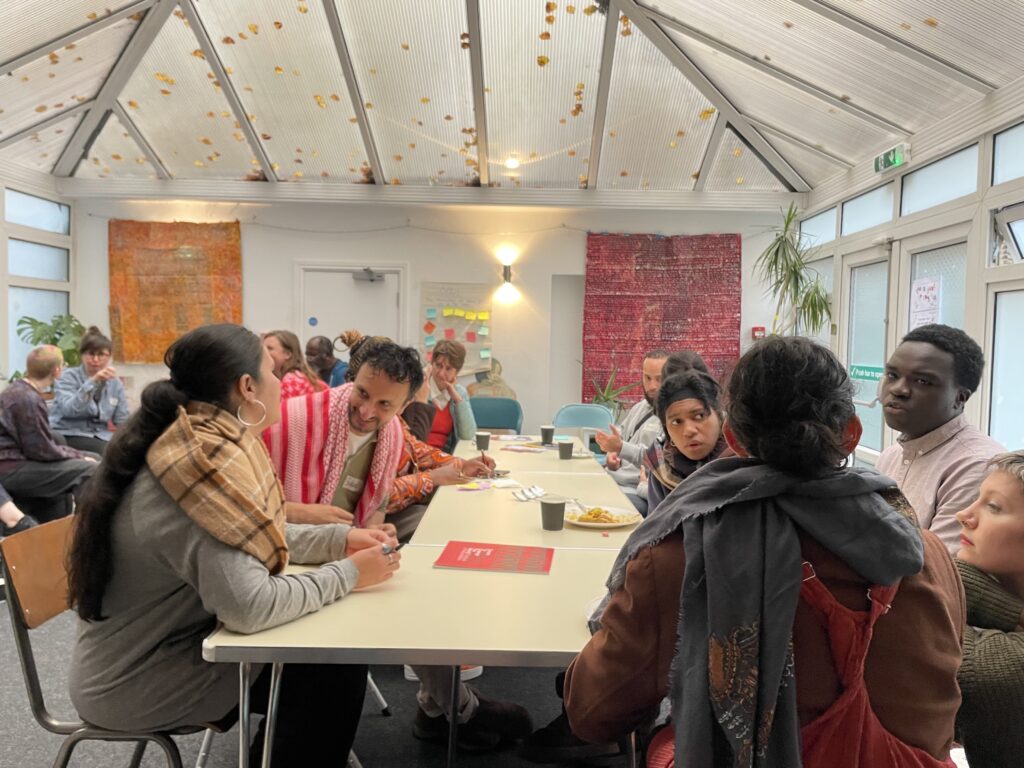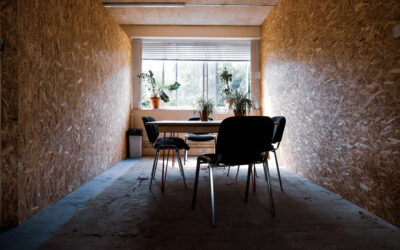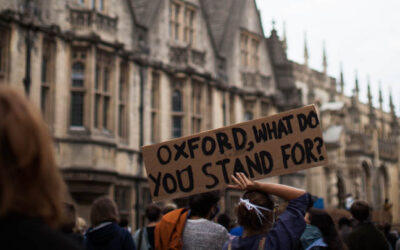EEDI: An update
It has been six months since the (re)launch of our EEDI commitments and we remain committed to embedding these throughout our organisation and community. Transparency is key as this work evolves, so we want to share our workings and key learnings, as we strengthen connections across all five strands, and also to highlight areas that are yet to develop.
Dismantling Racism
We have maintained an ongoing commitment to our Racial Justice Reflection Sessions, which continue to adopt the ‘Encounters with Race’ format from the Race and Space curriculum. These sessions, complemented by readings and other sources, serve to broaden our knowledge and understanding of issues related to race and spatial justice.
Internally, the work on our inclusive recruitment policy and approach continues, and we are committed to working with community leaders and a consultant to inform ongoing improvements, as well as exploring new forms of engagement.
We have welcomed new residents to the Source hub which are either Global Majority-led or supporting groups from the Global Majority. Read more about The Source here.
We are making progress with our supply chain and resources that platform, connect and support Global Majority-led organisations and those promoting racial justice. We have been consulting with our community on how to make this a living and useful resource for organisations across Oxfordshire, with the intention of launching a beta version later this year.
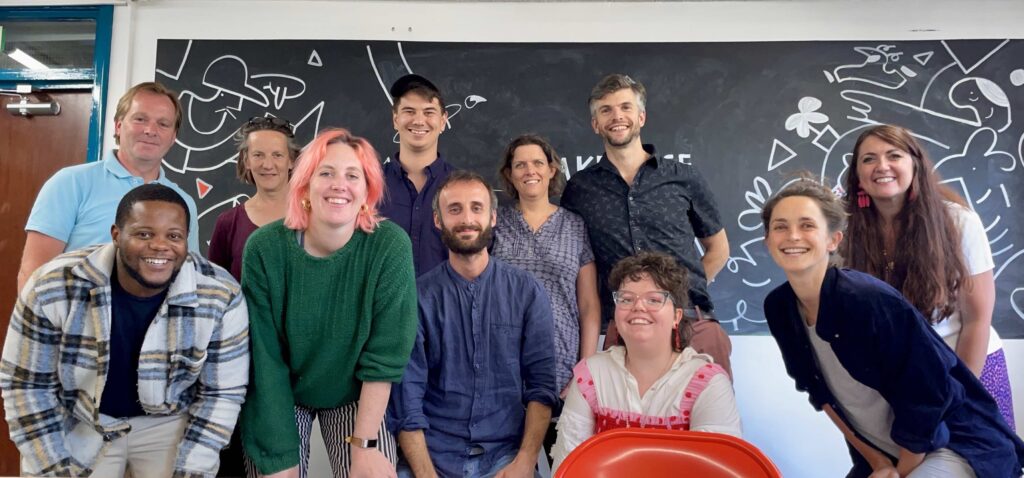
Accessibility and Ableism
We are excited to have launched a new multipurpose space in Didcot. This is a sensory-friendly room to be used for a variety of reasons such as wellbeing, 1:1s, breastfeeding, quiet time, prayer, reflection or socialising. It comes equipped with different comfortable seating options, as well as fidget toys, pens, paper crosswords/activities and a football table.
Sensory kits are being provided for each hub space, including fidget toys, ear defenders, pens, paper, dyslexia colour films, sunglasses, and plushies. These will be available for anyone to use, with particular benefit to neurodivergent people.
We are excited to have a permanent ‘Play Kit’ for the event space at The Community Works: A pop-up resource for young people of different ages; it includes open-ended play things from soft toys to toddler climbing equipment that can easily be set up and packed away for any event.
Our focus for the next quarter is to deepen connections with existing local groups who are working on upending ableism and widening accessibility. We have a number of fantastic Makespace residents working in this area (Oxford Poetry Library, Beautiful Drama Club, My Life My Choice/ YWMP/ – and we look forward to learning from these groups.
As we grow as an organisation, we also recognise the need to make improvements on our website and social media; ensuring our content is accessible to those with varying needs: We are working on a digital accessibility toolkit and look forward to finalising and implementing this over the coming year.
Additionally, we recognise that transforming existing buildings doesn’t always lend itself to physical accessibility. We are continually working to make our spaces more accessible, to more individuals, wherever we can: This includes lighting, spatial design, access, quiet space, clear signage and staff training.
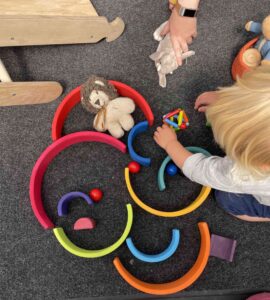
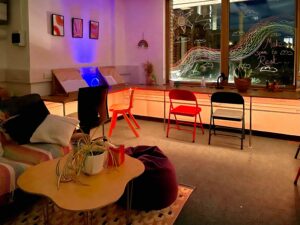
Gender & Sexuality
We are testing and developing our Safer Spaces Policy to ensure that our spaces and events come with a clear guidance stating behaviour that won’t be tolerated, to ensure that everyone feels welcome and safe.
We have completed an audit of our toilets to ensure there is a gender-neutral option in each hub space. Additionally, progressive pride and trans flags have been ordered for all hubs.
Community Development Coordinator, Molly, provided training on LGBTQ+ allyship to the Makespace team; this included highlighting LGBTQ+ identities and experiences, considering what it means to be an ally and exploring the potential barriers, as well as identifying ways to overcome them.
We continue to review our policies to make sure they are inclusive for all genders and sexualities, and we look forward to running more events around gender and sexuality inclusion this year and beyond. Keep in the loop via our newsletter and socials for updates!
Ecological crisis
We remain committed to the reuse of vacant buildings as our primary ecological strategy. We are often limited in the improvements we can make, but continue to buy only 100% renewable electricity where we control the billing. We are also embarking on a range of funding applications to introduce energy-saving improvements and renewable energy improvements in key hub spaces.
After the environmental impact from our buildings, how our team and community travel to and from their spaces is our next biggest impact. To understand this better, we’ve begun a travel survey, looking at ways we can encourage more sustainable travel choices.
We were excited to witness the presentation by CAG this January, titled “Introduction to Nature Recovery Networks (NRN),” The purpose being to gain an overview of the work being done by CAG and other community action groups, as well as to explore potential connections and opportunities for collaboration. Some connections have already been established, including a ‘Pocket Park Tour’ with Replenish and Greening Jericho. Community Development Coordinator, Kay, has also completed her carbon literacy training and individual signing of the Green Charter, boosting the knowledge and awareness in the team.
Social Inequality
Since this year’s reporting start date of July 2023, 50% of the organisations supported with rent support grants have been identified as having protected characteristics. While this is a positive step, it is important to recognise the limitations of this as a metric and that representation is only one indicator around movements towards greater social equality and spatial justice.
Towards the end of 2023, we saw the launch of a solidarity peer support series – Future Thinking Together – a collection of free learning events dedicated to opening up access to resources and space in precarious times and building new forms of mutual support and solidarity.
We continue to implement and develop our ‘fairer rent’ strategy, which strives to make our spaces affordable for all types of groups. Since July 2023, we’ve provided over 33 occupiers with rent support grants.
Our tailored technical support continues, with thanks to the Step Change Fund as well as our role on the steering groups for Owned by Oxford and Clore Social Leadership . We were also excited to see the development of the Abingdon Arts and Culture Project, a regenerative arts project designed to unlock the skills and knowledge of local residents and community groups in South Abingdon.
We envisage the development of our work on George Street will support our work in advocating for the commons, alongside continuing to learn from others such as Dark Matter Labs, Civic Square, Hastings Commons, Co-cities and many more.
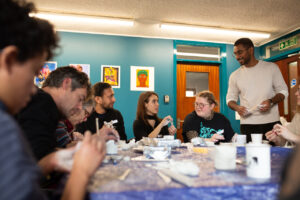
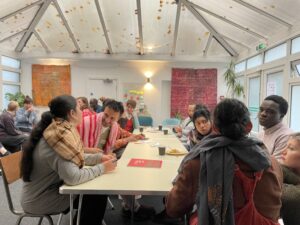
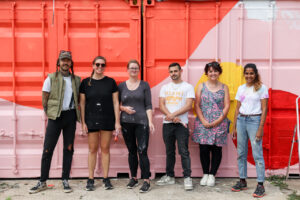
The fabric of Makespace is bound together by this work, and while we strive to advance, we also recognise that this work is never finished: It is constantly evolving. We encourage collaboration and welcome thoughts and reflections, now and in the future, to foster a more inclusive, sustainable and equitable community, together.
